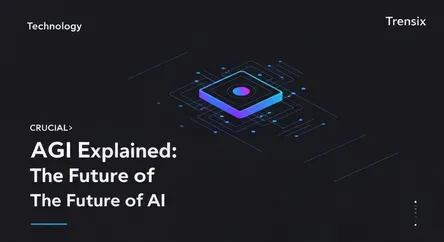Technology
AGI Explained: The Future of AI

Discover Artificial General Intelligence (AGI), the next frontier in AI. Learn what it is, why it's trending, and its potential impact on humanity.
What is it?
Artificial General Intelligence (AGI), often called "strong AI," is a theoretical form of artificial intelligence that possesses the ability to understand, learn, and apply its intelligence to solve any problem a human can. Unlike the narrow AI we use today, which is designed for specific tasks like playing chess or driving a car, an AGI would have a flexible, generalized cognitive ability. It could reason, plan, comprehend complex ideas, and learn from experience across a vast range of domains, much like a person.
Why is it trending?
Recent breakthroughs in large language models (LLMs) and generative AI have reignited the conversation around AGI. Models like GPT-4 demonstrate surprisingly versatile capabilities, sparking debate on whether they show early signs of general intelligence. This has accelerated research and massive investments from major tech companies, all aiming to be the first to crack the code of AGI. The concept has moved from science fiction to a tangible long-term goal for the tech industry, making it a hot topic in labs and boardrooms alike.
How does it affect people?
The potential impact of AGI is profound and twofold. Proponents believe it could solve humanity's most complex challenges, from curing diseases to reversing climate change and ending poverty. However, its development also raises serious ethical and safety concerns. These include mass job displacement, the potential for autonomous systems to operate beyond human control, and existential risks if its goals aren't perfectly aligned with human values. The pursuit of AGI is forcing society to confront fundamental questions about the future of work, governance, and humanity's role in a world with superintelligent machines.